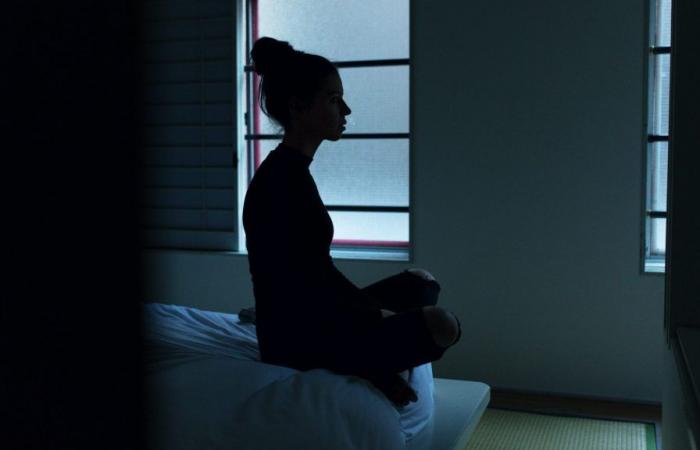
A few months after the birth of her daughter, Océane suffered postpartum depression which lasted two years. Before he managed to put into words what was happening to him, and to get back on track, it took time and good support.
Postpartum depression may affect 16.7% of women according to the 2021 national perinatal survey. But this disease is still sometimes underdiagnosed, and it is not always easy to obtain the support and treatments necessary to cure it. How to get out of postpartum depression? Océane* testifies.
Also read:
“One evening, at 5 months pregnant, I broke down, I opened a bottle and I drank”: Amélie, 36, tells how she stopped drinking alcohol
History, but no warning signs
Océane experienced a very long depressive episode during her adolescence, only treated the year she turned 18. “ I took treatment for 3 years, then continued psychotherapy for several more years. My depression was treated, I had stable mental health, some anxiety issues but I was ok. » Relieved to have undergone in-depth therapy, Océane calmly approaches motherhood when she becomes pregnant.
I had a great pregnancy, I felt great. I was arrested shortly before my maternity leave because I was harassed at work. Normally I would have pissed off my boss, here I was a little more fragile but it was not an alarm signal, I was calm.
In the first months following the birth of her daughter, despite fatigue and vivid memories of a complicated birth, Océane did not experience any depressive syndrome. “ My partner and I stayed at home for five months, he had taken parental leave and I was between jobs. I think if we hadn’t had these conditions, I would have sunk much sooner. »
Also read:
#MyPostpartum: what happens to the body after childbirth
The arrival of impulse phobias
« I was constantly thinking about my birth, and I had a lot of impulse phobias. » remembers Océane, evoking these intrusive thoughts in which we see ourselves doing harm to others, or to ourselves, without having the intention of doing so. “I knew it existed so I wasn’t worried. When I returned to work, when my daughter was 6 months old, the situation deteriorated. I was exhausted, I was breastfeeding at night, I wasn’t sleeping well, and she wouldn’t fall asleep alone, it was driving me crazy! I started to have more and more impulse phobias, and they took a new turn: they were incestuous impulse phobias.. »
The young mother then wonders if she is going crazy, and feels the need to seek help. Several other warning signs alert him: crying as soon as he wakes up, insomnia, increased anxiety, and anxiety attacks at night.
« I could no longer stand waking up at night, it was very hard. At night, I felt like I was going to die from not sleeping. But I didn’t want to put the word depression on my condition, it scared me. Yet, looking back, I was right in it. »
Also read:
“I had a complete perineum”, Marilyn tells us about her nightmarish birth, “a form of catharsis”
The call for help
“I consulted a psychologist specializing in perinatal with whom I started therapy. She helped me manage my anxiety at night, without solving the problem, but it reduced my impulse phobias. I constantly thought about sleep, it had become a central topic of discussion with my partner. »
A year later, Océane caught Covid and went through two episodes of psychological decompensation triggered by this infection. “ It was two ultra violent depressive episodes, but also ultra short, lasting around six hours, with suicidal thoughts.. » These events pushed the young woman to consult her doctor, who prescribed anxiolytics and antidepressants in small doses. “ The question of my daughter’s sleep remained very delicate, I still had quite a lot of emotional instability, with a lot of crying. In my case, therapy was not enough. »
Also read:
Do you know the comb technique to reduce childbirth pain?
Go back up the slope
“My doctor explained to me that lack of sleep was a factor in depression, and that I also had poor serotonin management. When you have already had mental health concerns, you are more at risk of postpartum depression. And the lack of sleep makes everything explode. » He also explains to her that she suffers from a recurring depressive disorder, which will manifest itself again on other occasions, for example during perimenopause.
After three weeks of treatment, Océane feels alive again. “ I wondered why I hadn’t taken it before. For two years I lived on a wire, balancing, and suddenly I felt like I was walking flat on the road. That’s when I realized I had been depressed since my daughter was 6 months old.. I wish I had been diagnosed sooner. I didn’t want it to happen to me again so much that I was in denial.
Knowing that the problem was chemical, that my brain is not functioning well and needs treatment was a huge relief, I felt less guilt, it’s like when another organ is malfunctioning and needs treatment. ‘a treatment. »
Taking antidepressants, combined with the continuation of her psychotherapy to treat the depression in depth, helped Océane to gradually come out of it. “ With the treatment, I discovered that I could take care of my daughter at night without getting upset, without losing my patience, it was a radical change. »
Getting out of postpartum depression
Today, Océane says she has overcome postpartum depression. But her daughter still wakes up at night, the situation remains fragile, and she continues her antidepressant treatment. “ Last spring, she started having serious sleeping problems again, and we had to increase my dose of treatment to deal with it. I’m in the process of turning her down, and I’d like to stop it when she sleeps really well, even if it still takes years. »
In addition to medical and psychological support, Océane found help from the Maman Blues association, which offers a space to talk to suffering mothers. “ I had a video meeting which really freed me, especially on the subject of impulse phobias. Before I even mentioned it, a member of the association mentioned the existence of incest impulse phobias, and another mother said she had them too. I said to myself « I’m not crazy, I’m not putting my daughter in danger by keeping her with me! » It is an impulse phobia like any other, it is often the symptom of an anxiety or depressive disorder, you should not hesitate to consult! »
This contact with the association was a first step for Océane, from the first warning signals felt, and legitimized her decision to see a psychologist. “ We should also not minimize the role of lack of sleep and its chemical effects, even if like me we have the impression that we are armored in terms of working on ourselves. This is not why we are not at risk of having a depressive episode. »
If you recognize yourself in this testimony, do not hesitate to talk about it with your doctor.
*The first name has been changed
More articles about
Post-partum
Testify on Madmoizelle
To testify about Madmoizelle, write to us at:
[email protected]
We look forward to reading you!





